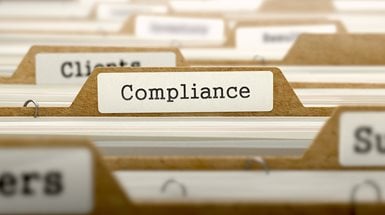Compliance in recruitment is absolutely essential and should be considered at each stage of the recruitment process. Finding a quality candidate is seldom easy and ahead of making a hiring decision you want to ensure that your talent pool has been narrowed down to highlight the best candidates available for the specific role.
It is vital, therefore, that during this process you keep the various aspects of recruitment compliance in mind to ensure a positive interview process and the sourcing of a quality hire.

Reference and Background Checks
Background checks are an integral part of the hiring process. As an employer you want to ensure that the candidate is a perfect fit for your business and by undergoing a thorough reference and background check process you determine whether the individual is an appropriate fit for the role.
Of course, there are instances in which you may be hiring from a large number of applicants – something that can add a certain level of complexity to this process. Recruitment tools such as ATS specialise in narrowing down talent pools to provide a more streamlined hiring process where reference and background checks can then be provided for those that meet the desired criteria.
Investigate Red Flags
During the hiring process, it is important to look out for red flags that might warrant further investigation. Here are some warning signs to be aware of:
1. An applicant has unexplained gaps in their work history. Be sure to ask any potential candidates to explain these gaps so you can get a better understanding of their past employment history.
2. The candidate’s references aren't favourable. Checking references gives an employer insight into how well an applicant performed in past roles and whether they possess the required qualities to be successful in your organisation.
3. The applicant has a criminal record related to the job for which they are applying. In some cases, certain convictions can automatically make an individual ineligible for employment. You should also be sure to check local laws and regulations to ensure you’re not violating any rules by denying someone with a criminal record a job opportunity.
4. There are discrepancies between what the candidate discloses and what is revealed during the background check. If there appear to be inconsistencies take extra time to investigate further so you can make an informed decision.
Discrimination in The Interview Process
In order to discourage any form of discrimination in the interview process, compliance states that certain sensitive subjects should be carefully navigated or avoided entirely. These subjects include questions pertaining to: gender, sexuality, religion, pregnancy, disability, age, or marriage. Of course, some of these may play a part in making a candidate eligible for a role (e.g., the meeting of minimum age to work at a bar), and as such, you may need to do some research on these subjects in order to ensure that you’re asking the right questions and compliance isn't compromised.
Many of the laws that have been implemented as a part of recruitment compliance are in place to protect both applicant and employer; by adhering to these you ensure the best experience for both parties and allow your recruitment team to focus on filling the vacancy with the best candidate available.
Contact Eploy for Applicant Tracking Systems (ATS)
At Epoy, we offer highly configurable Applicant Tracking Systems designed to help you find the best candidates for each and every job opening. Get in touch with our specialist team at Eploy to find out how we can help you meet your recruitment goals.
/Eploy-Taking-Notes-Card.png?center=0%2C0&height=175&heightratio=1.915151515151515&width=336)